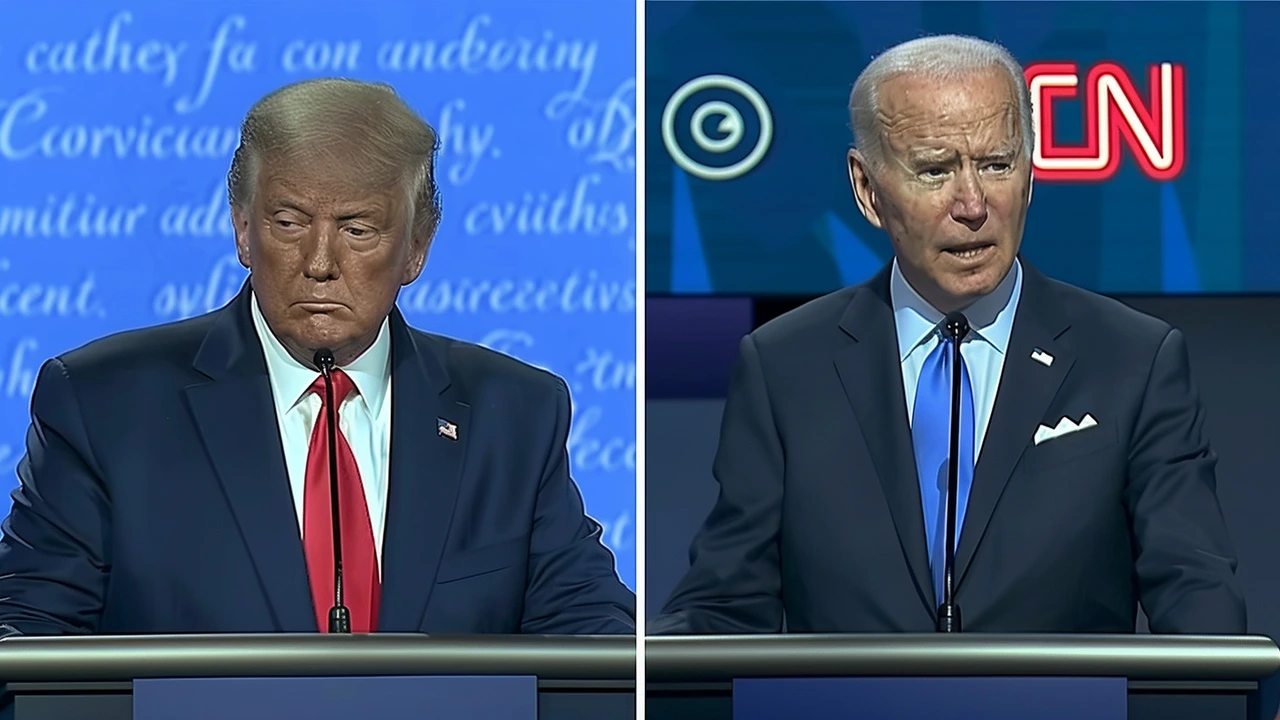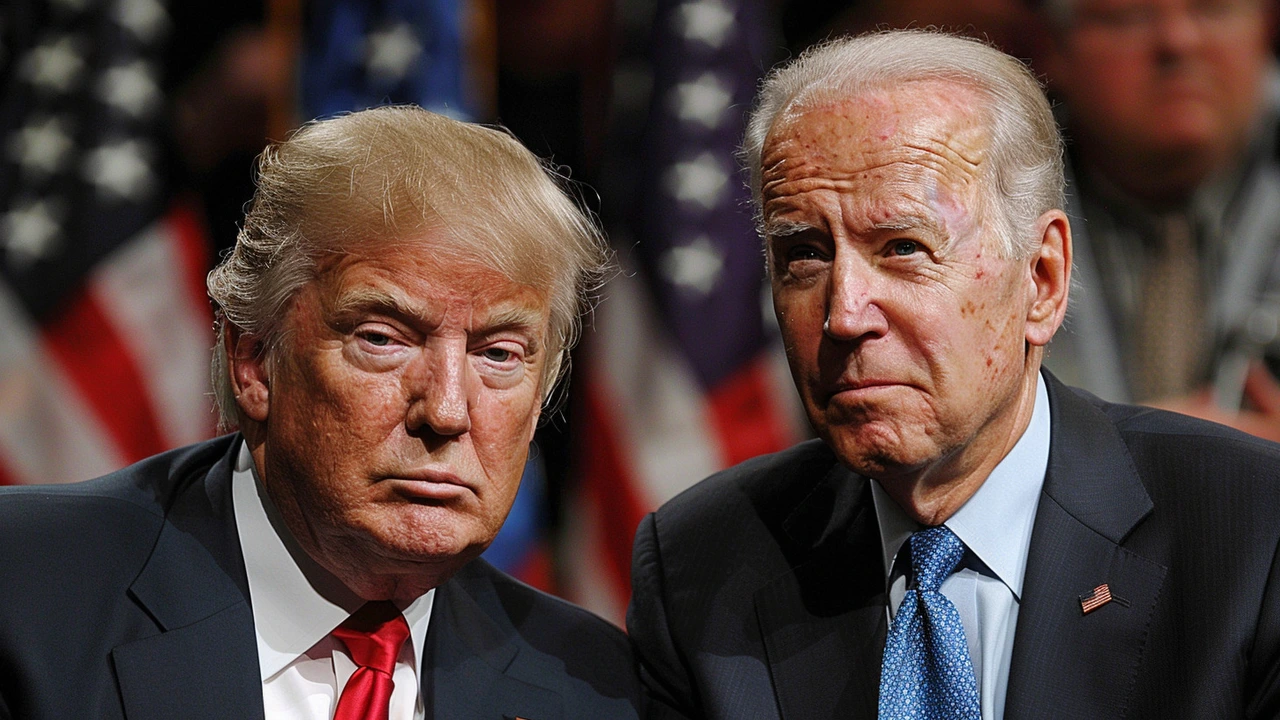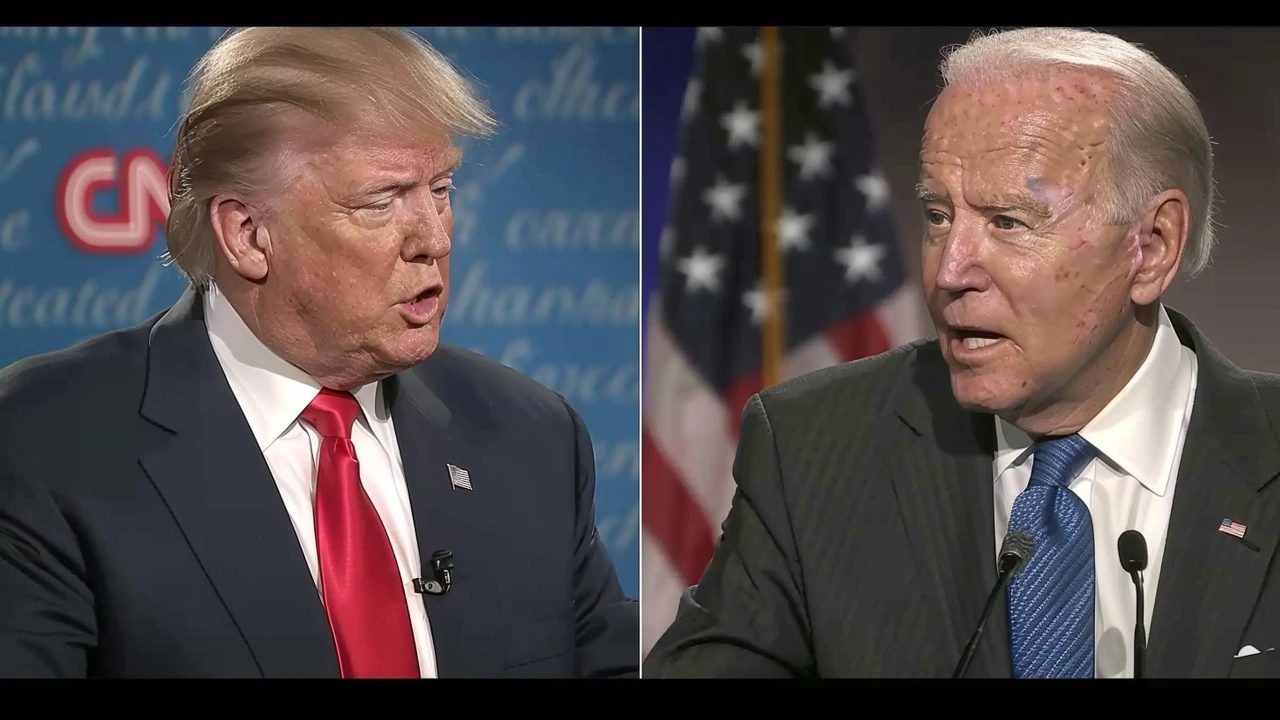Introduction
The recent CNN Presidential Debate held on June 27 featured Joe Biden and Donald Trump in a highly anticipated face-off. However, the event quickly drew a wave of criticism from various media outlets, including both MSNBC and Fox News. Despite their ideological differences, both networks found common ground in labeling the debate a 'chaotic spectacle,' far removed from the principles of statesmanship and eloquence that one would expect in a presidential debate. This chaotic atmosphere left many viewers feeling disenchanted with the democratic process.
Dissection of the Debate
The debate unfolded with a raft of familiar characteristics typical of both candidates. Donald Trump was in his usual form, frequently deviating from the truth with a stream of misinformation and half-truths. On the other side, Joe Biden's advanced age became more noticeable as the night progressed, highlighted by his hoarse voice and occasional lapses in concentration. According to his aides, these were attributed to a cold. Nonetheless, these moments allowed Trump an opening to exploit, contrasting his relentless energy and bombast against Biden's seemingly frail disposition.
The debate's format and agreed-upon rules inadvertently hindered the normally adept skills of the moderators, Jake Tapper and Dana Bash. Their inability to steer the discussion effectively led to a sense of disorder, leaving both seasoned journalists in an unusual position of ineffectiveness. What should have been an opportunity for substantive discussion quickly dissolved into a melee that disappointed many viewers.

The Candidates’ Performance
Biden's performance was a mixed bag. While he did challenge Trump's lies on occasion, his responses lacked the sharpness many had hoped for. His aides had prepared for such eventualities, anticipating Trump's tendency to dominate the narrative with misinformation. Nonetheless, the execution fell short, leaving doubts about Biden's ability to project the decisive leadership needed to navigate the complexities of a general election.
Trump, as expected, capitalized on the disorder. His strategy was clear: overwhelm the conversation with a torrent of statements, regardless of their accuracy. This approach seemed to destabilize Biden and the moderators alike, forcing the debate into a circuitous pattern that rarely touched upon substantive policy issues. This effect wasn't lost on the viewing public, many of whom expressed frustration and skepticism about the entire exercise's value.
Media Analysis and Public Reaction
The media's analysis post-debate echoed a broader sense of alarm. Experts across the political spectrum voiced concerns that the debacle only deepened the public's disillusionment with the democratic process. For Democrats, this was particularly troubling, as Biden's performance did little to allay fears about his age and capacity to lead effectively. The rampant misinformation from Trump, unchecked by the moderators, cast a long shadow over the event, amplifying anxieties about the erosion of truth in political discourse.
For viewers, the lack of a proper fact-checking mechanism by CNN's moderators came as a significant letdown. The responsibility of keeping the candidates' assertions accurate fell by the wayside, leading to an unfocused discussion that very much resembled a shouting match rather than a structured debate. This not only muddied the water in terms of key issues but also set a poor precedent for future debates.

Looking to the Future
As the dust settles from this turbulent debate, eyes are already turning to the next scheduled face-off between these two political giants. Expectations are mixed, considering the unprecedented nature of the first debate's events. The bar has been set high, albeit for all the wrong reasons. Moving forward, the need for substance over showmanship in political discourse remains paramount, but achieving this balance will be challenging amid the hyper-focus on optics and presentation.
To ensure subsequent debates serve their intended purpose, both moderators and participants will need to adapt and rectify the shortcomings witnessed during the CNN Presidential Debate. Enhanced fact-checking, stricter adherence to debate rules, and a focus on pertinent issues over personality politics will be critical in restoring faith in the process. Only then can the debates fulfill their role as a platform for clear, informed voter choices in a democratic society.
Conclusion
The CNN Presidential Debate on June 27 will be remembered for its chaotic nature and the frustrations it evoked among the American public. Both Joe Biden and Donald Trump showcased their well-known traits, leaving the electorate pondering their respective capabilities. Amidst this turmoil, the essential elements of truth and substance in political discourse were regrettably overshadowed. As we look ahead to future debates, the hope is for a more structured, informative, and genuinely democratic dialogue that can guide voters in making an educated decision.

Damian Liszkiewicz
June 28, 2024 AT 17:38Wow, the whole debate felt like a circus without a ringmaster 🎪. It’s fascinating how both sides can agree on chaos while still shouting their own narratives. I hear the frustration of viewers and it’s a reminder that civility still matters in our political theater. Let’s hope future moderators get a better script! 😊
Angela Arribas
June 28, 2024 AT 23:11Honestly, the moderators’ inability to enforce the agreed-upon rules is indefensible.
Sienna Ficken
June 29, 2024 AT 04:45Oh great, another verbal free‑for‑all where facts go to die and hyperbole throws a party. The debate turned into a fireworks display of ‘alternative facts’ and nostalgic anecdotes, all while the audience watched with popcorn in hand. It’s as if the producers thought reality TV beats politics any day.
Zac Death
June 29, 2024 AT 10:18Listening to the back‑and‑forth between Biden and Trump was like watching a tug‑of‑war between two old ships in a storm, each stubbornly refusing to steer toward a common horizon. The moderators, instead of being the lighthouse, acted more like flickering candles that barely illuminated the deck. By the time the first half hour rolled around, the audience could count the number of times Jake Tapper tried to reign in the chaos-maybe three, maybe four, and each attempt was drowned out by louder interruptions. Then Dana Bash attempted to pivot, only to be pulled into the vortex of relentless accusations. The pacing felt erratic, like a roller coaster that never finished its ascent, leaving riders nauseated and disoriented. Trump’s strategy, as always, was to overwhelm with a barrage of statements that ranged from the plausible to the outright fabricated, effectively drowning any nuance. Biden, on the other hand, seemed to be fighting a battle against his own voice, his hoarseness turning simple answers into laborious expositions. The age factor was not just a whispered footnote; it was a palpable undercurrent that affected his cadence and concentration. What’s more, the lack of real‑time fact‑checking turned the debate into a shouting match rather than a policy discussion, a point that both viewers and analysts have lamented. Viewers reported feeling a sense of fatigue, as if they had been forced to listen to two soundbites on repeat without any substantial content. Meanwhile, social media erupted with clips of the most outrageous moments, further amplifying the spectacle over the substance. The irony isn’t lost that a network dedicated to news turned the night into prime‑time entertainment, sacrificing depth for drama. In hindsight, the format should have included stricter time limits, clearer enforcement mechanisms, and perhaps a neutral panel of fact‑checkers. Such structural changes could have prevented the debate from devolving into pandemonium. As we look ahead to the next showdown, the hope is that the lessons from this night are taken to heart, ensuring that the stage is set for genuine discourse rather than performative chaos. Only then can voters get the information they need to make informed choices.
Lizzie Fournier
June 29, 2024 AT 15:51Totally feel you, Damian – the chaos really overshadows any chance for meaningful dialogue.
JAN SAE
June 29, 2024 AT 21:25Well, it’s absolutely essential that debates maintain decorum; otherwise, we’re simply inviting disorder; and that’s simply unacceptable!!!
Steve Dunkerley
June 30, 2024 AT 02:58From a communications‑theory perspective, the debate exemplified a degradation of discourse entropy, wherein signal‑to‑noise ratio plummeted precipitously, rendering policy articulation ineffective.
Jasmine Hinds
June 30, 2024 AT 08:31Exactly! 😎
Madison Neal
June 30, 2024 AT 14:05To add, the procedural non‑compliance observed undermines the epistemic scaffolding necessary for democratic deliberation.
John Crulz
June 30, 2024 AT 19:38Honestly, the whole thing just felt like a bad mixtape of talking over each other.
Anita Drake
July 1, 2024 AT 01:11Observing the debate, one can see both the strengths and the glaring weaknesses in how political narratives are framed.
Eduardo Lopez
July 1, 2024 AT 06:45Indeed, the spectacle unfolded with theatrical flair, yet the substance was conspicuously absent, a tragic misstep for our civic discourse.
Nancy Perez de Lezama
July 1, 2024 AT 12:18The debate failed to provide clear answers for voters.
Matt Heitz
July 1, 2024 AT 17:51In the geopolitical schema, such ambiguity erodes public trust and destabilizes the democratic feedback loop.
Susan Mark
July 1, 2024 AT 23:25Reading through the highlights, it seems a more structured moderation plan could curb the interruptions and keep the focus on policy.
Jason Jennings
July 2, 2024 AT 04:58Sure, but at the end of the day it's just another TV show.